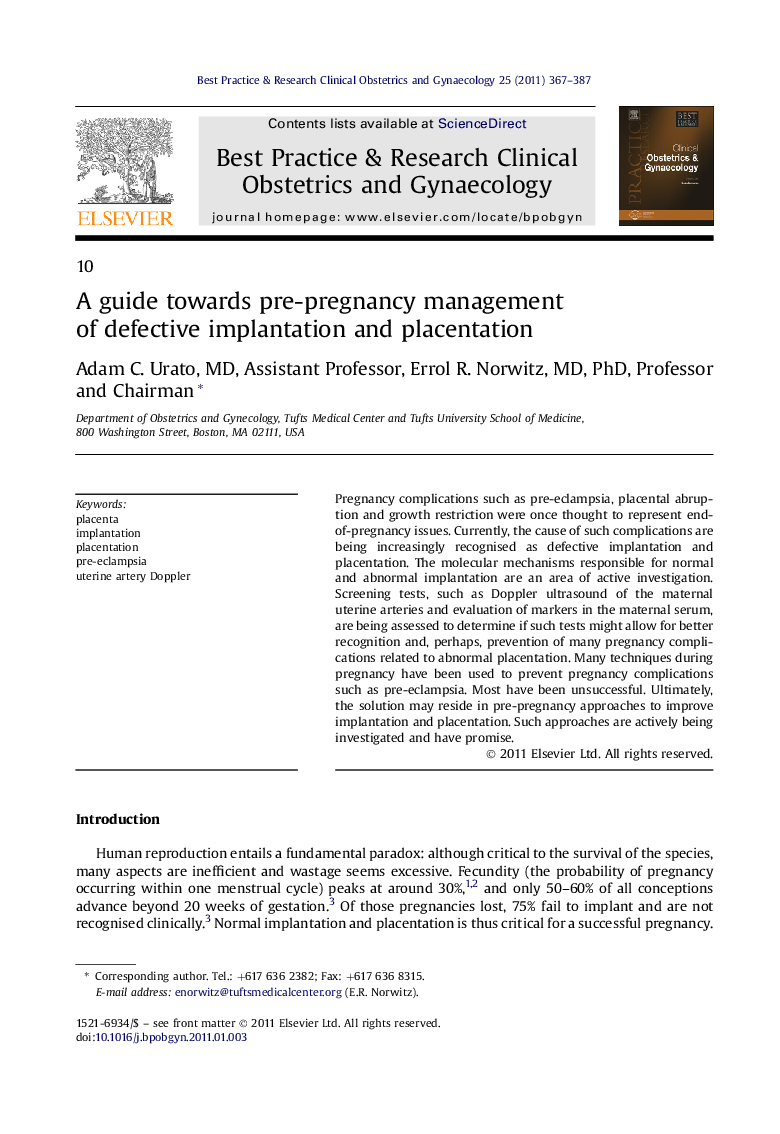| Article ID | Journal | Published Year | Pages | File Type |
|---|---|---|---|---|
| 6169285 | Best Practice & Research Clinical Obstetrics & Gynaecology | 2011 | 21 Pages |
Abstract
Pregnancy complications such as pre-eclampsia, placental abruption and growth restriction were once thought to represent end-of-pregnancy issues. Currently, the cause of such complications are being increasingly recognised as defective implantation and placentation. The molecular mechanisms responsible for normal and abnormal implantation are an area of active investigation. Screening tests, such as Doppler ultrasound of the maternal uterine arteries and evaluation of markers in the maternal serum, are being assessed to determine if such tests might allow for better recognition and, perhaps, prevention of many pregnancy complications related to abnormal placentation. Many techniques during pregnancy have been used to prevent pregnancy complications such as pre-eclampsia. Most have been unsuccessful. Ultimately, the solution may reside in pre-pregnancy approaches to improve implantation and placentation. Such approaches are actively being investigated and have promise.
Related Topics
Health Sciences
Medicine and Dentistry
Obstetrics, Gynecology and Women's Health
Authors
Adam C. MD, Assistant Professor, Errol R. MD, PhD, Professor and Chairman,
